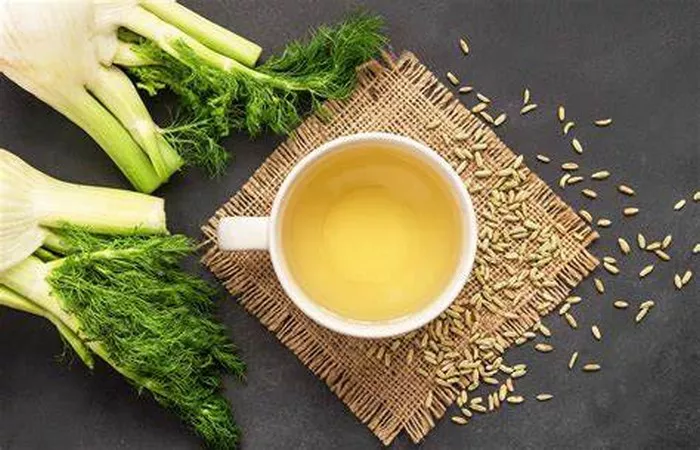Fennel tea, derived from the aromatic seeds of the fennel plant (Foeniculum vulgare), has been a staple in herbal medicine for centuries. Historically, fennel has been prized for its culinary uses as well as its medicinal properties, with records of its use dating back to ancient civilizations such as the Egyptians, Greeks, and Romans. Fennel tea, in particular, has been esteemed for its ability to address various health concerns, including digestive issues, menstrual discomfort, and respiratory ailments.
Among its many purported benefits, fennel tea has gained significant attention for its potential to support lactation in breastfeeding mothers. Known as a galactagogue, fennel is believed to stimulate milk production, making it a popular choice for nursing mothers seeking natural remedies to enhance their milk supply.
Galactagogue Properties:
The reputation of fennel tea as a galactagogue stems from its long history of use in traditional medicine systems around the world. In folk medicine, fennel seeds have been recommended to nursing mothers to promote milk flow and alleviate breastfeeding difficulties. The mechanism behind fennel’s galactagogue properties is not fully understood, but it is thought to be related to its phytoestrogenic compounds, which mimic the effects of estrogen in the body and may influence lactation.
While anecdotal evidence and traditional wisdom support fennel’s role in enhancing milk production, scientific research on its efficacy as a galactagogue is limited. However, many breastfeeding mothers swear by its effectiveness, reporting improvements in milk supply after incorporating fennel tea into their daily routine.
Scientific Evidence:
Although empirical evidence supporting the use of fennel tea specifically for increasing milk supply is scarce, several studies have investigated the potential lactogenic effects of fennel in animal models and in vitro experiments. For example, a study published in the journal “Phytotherapy Research” in 2014 found that extracts of fennel seeds demonstrated estrogenic activity in rats, suggesting a possible mechanism for its galactagogue effects.
Another study, published in “Food and Chemical Toxicology” in 2018, examined the lactogenic properties of fennel extract in mammary gland cells and observed an increase in milk production-related gene expression. While these findings are promising, further research is needed to confirm the efficacy of fennel tea in human lactation.
How to Use:
Preparing fennel tea is a straightforward process that can be easily incorporated into a breastfeeding mother’s daily routine. To make fennel tea:
1. Start by bringing water to a boil in a pot or kettle.
2. Add crushed or whole fennel seeds to the boiling water.
3. Allow the seeds to steep for 5-10 minutes, depending on desired strength.
4. Strain the tea to remove the seeds, then pour into a cup.
5. Optionally, sweeten with honey or add lemon for flavor.
For breastfeeding mothers looking to enhance their milk supply, it is generally recommended to drink one to three cups of fennel tea per day. However, individual responses may vary, so it’s essential to monitor the effects and adjust the dosage accordingly.
Benefits of Fennel Tea:
Beyond its potential to support lactation, fennel tea offers a range of additional benefits for breastfeeding mothers. Some of these include:
1. Digestive Aid: Fennel is well-known for its carminative properties, which can help alleviate gas, bloating, and indigestion—a common concern for postpartum women.
2. Relaxation: The soothing aroma and taste of fennel tea may promote relaxation and stress relief, which can be beneficial for both mother and baby.
3. Hydration: Staying adequately hydrated is crucial for breastfeeding mothers, and drinking fennel tea provides a flavorful alternative to plain water.
Safety and Side Effects:
While fennel tea is generally considered safe for most adults when consumed in moderate amounts, there are some precautions to be aware of, especially for breastfeeding women. Potential side effects of fennel tea may include:
1. Allergic reactions: Individuals with allergies to plants in the Apiaceae family, such as celery, carrots, and parsley, may experience allergic reactions to fennel.
2. Hormonal effects: Because fennel contains phytoestrogens, there is a theoretical risk of hormonal imbalances with prolonged or excessive consumption, although this risk appears to be low.
3. Interactions with medications: Fennel may interact with certain medications, particularly those metabolized by the liver. Breastfeeding mothers should consult with a healthcare professional before using fennel tea, especially if taking prescription medications.
Additionally, it’s essential to source fennel seeds from reputable suppliers to ensure quality and purity, as contaminants or adulterants may pose health risks.
Alternatives:
While fennel tea is a popular choice among breastfeeding mothers seeking to increase milk production, there are several other galactagogues and natural remedies that may offer similar benefits. Some alternatives to consider include:
1. Fenugreek: Another widely used galactagogue, fenugreek seeds have been shown in some studies to enhance milk production in breastfeeding women.
2. Blessed thistle: Often combined with fenugreek in lactation supplements, blessed thistle is believed to stimulate milk flow and improve milk quality.
3. Milk thistle: Known for its liver-supportive properties, milk thistle may indirectly support lactation by promoting overall health and hormone balance.
Consultation Reminder:
Before incorporating fennel tea or any other supplement into their regimen, breastfeeding mothers should consult with a qualified healthcare professional, such as a lactation consultant or physician. While herbal remedies like fennel tea can offer potential benefits, individual circumstances vary, and it’s essential to ensure that any interventions are safe and appropriate for both mother and baby.
In conclusion, fennel tea holds promise as a natural aid for breastfeeding mothers seeking to optimize milk production. While scientific evidence supporting its efficacy is limited, many women have reported positive experiences with fennel tea in supporting lactation. By understanding how to safely incorporate fennel tea into their postpartum care routine and consulting with healthcare professionals as needed, breastfeeding mothers can make informed decisions about their lactation support strategies.


